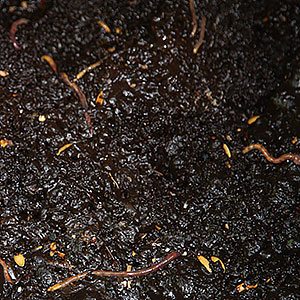
How to use Worm Castings in the Garden
If you have seen our video on vermicasting, or ‘worm farming’, you may be interested in how to use worm castings in the garden.
One of the organic solutions to fertilising your garden is by using worm castings, but what are worm worm castings and how do you use them ?
Worm castings are called vermicast, and this waste that worms leave behind after eating waste materials including vegetable scraps from the kitchen as well as decaying garden waste. It is sometimes called worm poo, and it is one of the richest form of fertiliser available.
Worm castings are full of beneficial microbes and bacteria, they contain humid acid which helps plants with the uptake of nutrients and can also help improve overall soil health.
They are also a natural, organic product. So if you want to improve plant health, speed up plant growth and grow plants that have better disease resistance, worm castings, or vermicast are for you.
Why are worm castings good for plants ? :
- The castings contain beneficial bacteria and microbes that are important for plant growth.
- They help control pH levels in soil.
- The humic acid produced helps stimulate plant growth.
Seven ways to use Worm Castings
- Use them when planting new plants – simply put a handful in the planting hole.
- Use them when you are propagating seeds, mix them with coir as a seed raising mix, 2 parts coir to 1 part worm castings
- Use them as a general soil conditioner by digging them in through the soil.
- Use them before you mulch, spread them thinly and then mulch over the top.
- Use it for container grown plants, 25 % worm castings to 75% potting soil
- Use them as a tonic when watering, a handful in a watering can and then use it on the garden.
- Use it as a foliar spray, a handful in a 25 litre (1 gallon ) bucket, add a capful or two of seaweed or fish fertiliser and use it as a foliar spray.
You can also use the leachate, use it when its fresh and dilute it at a 10 parts water to 1 part leachate ratio . Fresh leachate is beneficial, old leachate is not.
Top Tips
- When you do use worm castings, make sure that you incorporate them into the soil, not just spread them on the top. The beneficial microbes survive and will be be of more use when they are under the the top of the soil, not exposed to the sun and not drying out.
- Make your own worm castings using a worm farm.
